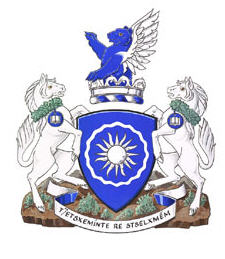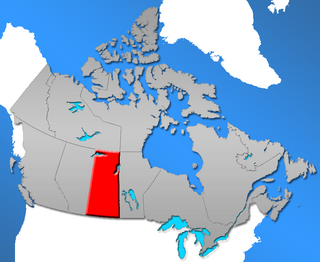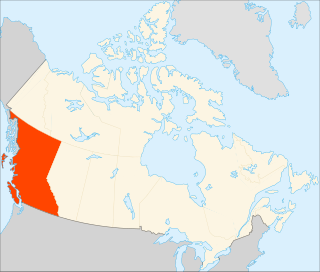
Camosun College is a public college located in Saanich, British Columbia, Canada. The college has two campuses, Lansdowne and Interurban, with a total full-time equivalent enrolment of 4,946 students in 2022/23. Camosun College also provides contract training for local business; research, innovation and prototyping services for industry; and trained co-op students for employers.

Vancouver Island University is a Canadian public university serving Vancouver Island and coastal British Columbia. Malaspina College began in 1969 and it has grown into a university which plays an important role in the educational, cultural, and economic life of the region. The main campus is located in Nanaimo; there are regional campuses in Duncan and Powell River as well as a centre in Parksville.

Thompson Rivers University is a public teaching and research university offering undergraduate and graduate degrees and vocational training. Its main campus is in Kamloops, British Columbia, Canada, and its name comes from the two rivers which converge in Kamloops, the North Thompson and South Thompson. The university has a satellite campus in Williams Lake, BC and a distance education division called TRU-Open Learning. It also has several international partnerships through its TRU World division. TRU is accredited by the Northwest Commission on Colleges and Universities (NWCCU) at the associate, baccalaureate and master's degree levels.

Emily Carr University of Art + Design is a public art university located in Vancouver, British Columbia, Canada. The university's campus is located within the Great Northern Way Campus in Strathcona. The university is a co-educational institution that operates four academic faculties: the Faculty of Culture + Community, the Ian Gillespie Faculty of Design + Dynamic Media, the Audian Faculty of Art, and the Jake Kerr Faculty of Graduate Studies.
Aurora College, formerly Arctic College, is a college located in the Northwest Territories, Canada with campuses in Inuvik, Fort Smith and Yellowknife. They have learning centres in 23 communities in the NWT. The head office for Aurora College is located in Fort Smith.
North Island College (NIC) North Island College (NIC), is a community college located primarily on Vancouver Island, British Columbia, Canada.

Vancouver Community College (VCC) is a public community college in Vancouver, British Columbia, Canada. Founded in 1965, it is the oldest community college in British Columbia, offering 91 certificate programs, 31 diploma programs, and 3 bachelor's degree programs. VCC has two campuses: Broadway and Downtown.
Northern Lights College (NLC) is an institution that provides post-secondary education to residents of Northern British Columbia. It currently has campuses and access centers in eight communities across the northern third of British Columbia, with Regional Administration located on the Dawson Creek campus. As of 2021 international students comprised 25% of NLC's total student headcount, and Indigenous students 20%. NLC has a working agreement with the University of Northern British Columbia. The college president is Todd Bondaroff.
The Institute of Indigenous Government, Canada's First Nations College, is a publicly funded post-secondary education institute located in Burnaby, British Columbia. Established in 1995, the institute was originally located in the Gastown neighbourhood of Vancouver. Its corporate owners, members, faculty, and students were made up of indigenous people from around the world, in the majority. In September 2007, the Institute of Indigenous Government became part of the Nicola Valley Institute of Technology; an aboriginal-run, private institute in Merritt, British Columbia, that was started in 1983.

Okanagan College is a public, post-secondary institution with over 120 certificates, diplomas, degrees and programs including apprenticeship and pre-apprenticeship trades programs. Its largest campus is located in Kelowna, British Columbia, Canada. Established in 1963, Okanagan College has since grown to be the largest college in British Columbia outside the Lower Mainland and Victoria with roughly 5,000 full-time students on four regional campuses and is the second-largest trade school in British Columbia. 1,885 international students from over 40 countries studied at Okanagan College in 2022-23, comprising 11% of total student headcount. The College once had one of the fastest growing populations of Aboriginal students of any college in the province; in the 2015-16 academic year Okanagan College delivered educational programming to 1,680 Aboriginal students. However, the growth did not contune, in 2021-22 the Indigenous student headcount remained at 1,690.

Bow Valley College is a Canadian public, board-governed college located in Calgary, Alberta, operating as a comprehensive community institution under the Post-Secondary Learning Act of Alberta. The branch campuses are: Airdrie, Banff, Cochrane, Okotoks, and Strathmore. Bow Valley College is a member of the Alberta Rural Development Network and Colleges and Institutes Canada.
Coast Mountain College (CMTN) is an accredited, publicly-funded post-secondary educational institution that serves the communities of British Columbia's northwest region. CMTN offers field schools, college access, trades, university credit, health and human services programs. The college is a member of the University of the Arctic network, and Colleges and Institutes Canada (CiCan).

The NEC Native Education College is a registered private aboriginal college based in Vancouver, British Columbia. It is governed by non-profit society and is a registered charitable organization.

Higher education in Canada includes provincial, territorial, indigenous and military higher education systems.

Higher education in Manitoba includes institutions and systems of higher or advanced education in the province of Manitoba.

Historically, Saskatchewan's higher education system has been "significantly shaped" by demographics. In 1901, six years prior to the 1907 founding of a university in Saskatchewan, the urban population in Saskatchewan was 14,266 (16%) while the rural population was 77,013 (84%). One hundred years later, the proportions had changed significantly: urban population in 2001 was 629,036 (64%) while the rural population was 349,897 (36%). Over time the province's higher education system has changed significantly in response both to this demographic shift and to provincial politics.

Higher education in British Columbia is delivered by 25 publicly funded institutions that are composed of eleven universities, eleven colleges, and three institutes. This is in addition to three private universities, five private colleges, and six theological colleges. There are also an extensive number of private career institutes and colleges. Over 297,000 students were enrolled in post-secondary institutions in British Columbia in the 2019-2020 academic year.

Shawn A-in-chut Atleo, is an activist and politician, a former National Chief of the Assembly of First Nations in Canada. He also has served since 1999 as a Hereditary Chief of the Ahousaht First Nation, part of the Nuu-chah-nulth Nation based in British Columbia.














